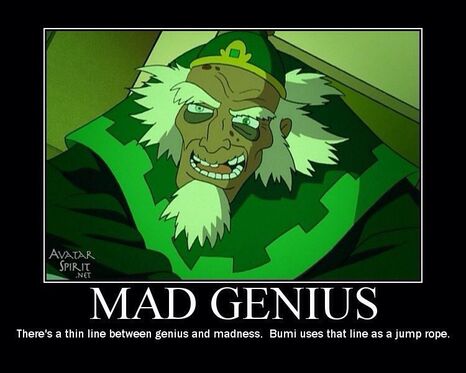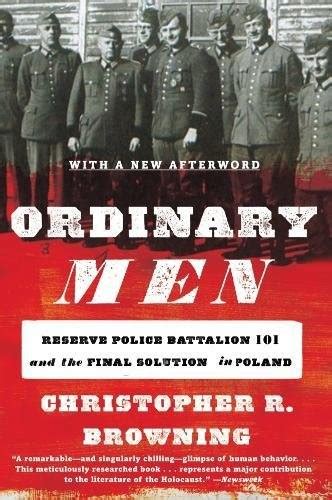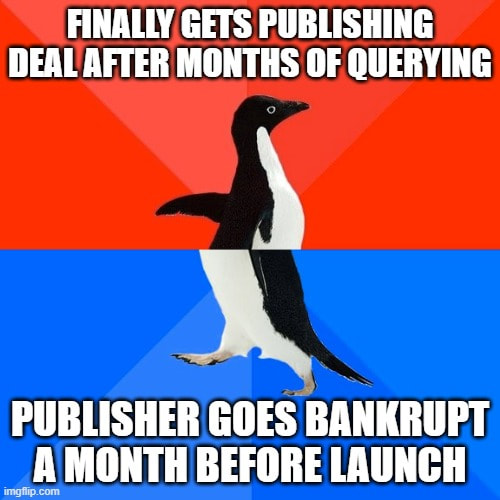Exploring the Mad genius phenomenon To understand the connection between mental health and creativity, one must first know what creativity is. It’s not just the ability to come up with ideas, but the ideas must be simultaneously unique and functional. A good way to determine creativity would be to present an item to a group and have them propose various ways to use the item. You would then compare the group’s answers and tally them up by number of idea and uniqueness. For example, you gave a brick to twenty people. All twenty of those people proposed using the brick as a doorstop. Useful? Yes. Unique? No. One person proposes the brick be used as a shoe. Useful? Not really. Unique? Yes. Then the star of the group suggests the brick be pulverized, dissolved into a liquid solution, and used as an additive to color paint. Useful? Yes. Unique? Yes. There’s your creative person. Scientists have broken down human personality into five major groups: Extraversion, Openness, Neuroticism, Conscientiousness, and Agreeableness. Each is then broken down into sub-categories. The sub-categories for openness are intelligence and creativity. Of course, at first glance, everyone would want to be high in this category of openness. But if you’ve been reading my blog for long, you will know that being super high in any of these categories comes with its own set of problems. A person high in openness generally enjoys exploring new ideas, loves variety, and frequently gets lost musing about fantasies or what-if scenarios. They value beauty and aesthetics in daily life. Their limitless creativity also sees the merits in having flexible social constructs and laws. A person low in openness, however, prefers a more practical approach to the world. They are not given to flights of fantasy, but prefer concrete tangible ideas. They are not easily moved by music or art, nor do they require thrill to keep working. They are more likely to stick to principles they’ve learned from childhood rather than to be easily swayed by a new idea. Keep in mind that trait openness is not trait conscientiousness, although there is some overlap. A conscientious person is high in orderliness and industriousness, so some things that are interpreted as rigid and lacking in flexibility are manifestations of the ‘black-and-white’ phenomenon where the person believes things should fit into orderly boxes. So, what is it in a creative person that leads to struggles of mental health? There’s a lot of speculation on this, but my personal theory is the rapid speed at which the mind of an open person flows. With so many thoughts running through the mind at a given time, is it any wonder they may feel anxious? Or as they find themselves moved by the arts and stories around them, is it a wonder their mood changes so easily? Not to mention that a person with bipolar in a manic state show extreme levels of creativity. It’s like something in the brain switches over allowing them to pour forth all sorts of ideas and new creations. But what happens when the body is exhausted from this continued ‘pouring forth?’ What goes up must come down, and heightened levels of anxiety often lead to depression. In fact, some speculate that it is rare to see anxiety without depression. So should the artist turn in their paintbrush, the writer turn in their pen, and strive to close off their minds? I know if I did, I’d be miserable. But it is good to be aware of our tendencies and the things that make us tick. If as a creative you need help, get it. But keep in mind that thing that causes you to stumble might also propel you to greatness. Puder, David. “Episode 098: The Big Five: Openness.” Psychiatry & Psychotherapy Podcast, Psychiatry & Psychotherapy Podcast, 17 Oct. 2020, www.psychiatrypodcast.com/psychiatry-psychotherapy-podcast/ne883a0toywa842v8ibc6htc7qw9ay.
0 Comments
*Trigger warning* Details regarding the execution of Jews during the Nazi regime.
One of the biggest shames in writing history is the mischaracterization of the mentally ill. I could go into a long rant about this point alone citing all the scenarios and atrocities. I believe there is a central misunderstanding within the population or writers that leads to these mischaracterizations—the myth that one must be mentally ill in order to be evil. Why would someone murder a child? Because they were a sociopath. Why would someone cut up their parents into tiny pieces? Because the voice in their head told them to. This waving of the hand over atrocities and claiming they had to be insane is appalling. Of course, the more uncomfortable fact is most people who commit evil are sane, rational people. This fact should chill us to the bone. Because that means that ‘normal’ people are capable of horrible atrocities. We are capable of incomprehensible evil. I’ve heard it said that one should read history from the eyes of the perpetrator, not the victim to prevent themselves from going down the same road. This is good advice. One of the books that inspired my story Surviving Midas was Ordinary Men: Reserve Police Battalion 101 and the Final Solution by Christopher Browning. It’s a harrowing read and one I had to take breaks from in order to finish. There is very little in terms of records regarding the mental state of the Nazis who executed the Jewish people during the holocaust. During the investigations that followed the war, very few former Nazis would admit to having taken part in any executions. For whatever reason, the men of the Reserve Police Battalion did share their stories. So what sort of men was it that executed millions of Jewish people? For the most part, ordinary men as the title of the book implies. These were farmers, craftsmen, factory workers, with families and children of their own. The Reserve Battalion 101 was given orders to arrive in a town called Jozefow at the break of dawn, haul the Jewish people from their homes, load the men up into trucks for a workcamp, and shoot the women and children. According to certain accounts, these men were shocked and horrified by the orders they were given. Even their commander spent most of the day wringing his hands and muttering about what terrible business they had been wrapped up in. Group after group after group of women and children were taken out to the woods, forced to lay down on their stomachs, and shot in the back of the neck. Many of the officers did not make it through the first couple of executions before asking to be removed from the task. Their requests were granted. They could have gotten out of it from the start, and some of them did. Upon arrival to the Jozefow, their commander informed them any could step out of line and go back to the barracks. Only a couple took him up on that offer. Others would later say they were too stunned in the moment to react with a clear mind, but that wasn’t the only opportunity to bow out. One officer states he stayed up by the trucks for the rest of the day loading the men and being sure to look busy anytime a new group of executioners was being rounded up. So, why did they do it? Per their statements, they feared being considered ‘too weak’ or ‘cowardly.’ They did not want to ‘lose face’ before the other policemen. As one officer stated: “I must answer that no one wants to be thought a coward.” It was one thing to refuse at the beginning, he added, and quite another to try to shoot but not be able to continue. Another stated his reason to not refuse was simply because, “I was a coward.” One policemen, who killed as many as twenty before quitting stated: “I thought that I could master the situation, that without me the Jews were not going to escape anyway . . . Truthfully I must say that at the time we didn’t reflect about it at all. Only years later did any of us become truly conscious of what had happened then . . . Only later did it first occur to me that (it) had not been right.” Others rationalized their actions by believing they were not going to alter the fate of the Jews by saying no anyways. In one bizarre statement, an officer stated he killed only children while his neighbor shot the mothers. His belief was by shooting the mother, the children were dead anyways. I write about this from perspective of an author because I think it’s important for us to be aware of this. Part of the job of an author is to show the truth through lies, and it’s not the truth that most heinous crimes are committed by the insane. It’s misguided, rational people who do the most damage. People who are afraid—in fear for their life, in fear of their livelihood, or just in fear for their reputation—are the most dangerous of us all. Let us strive to know truth and goodness and not be afraid. And let’s tell the truth with our lies (stories) so that others can see it too. Ordinary Men: Reserve Police Battalion 101 and the Final Solution in Poland, by Christopher R. Browning, Harper Perennial, 2017. Bankrupt publisherThe Dangers of Indie Publishing . . .
I didn't get my regularly scheduled blog out last week for a couple of reasons. First being that it was the Fourth of July weekend. And second being the bombshell that came the following morning. My publisher announced it was officially closing its doors. Because my book had not yet been published, my contract termination and the reversion of my rights came with the announcement. Although I am starting at square one, I am free to query other agents and publishing houses. Others were not so lucky. A friend of mine launched her book with our publisher only three weeks ago. There is a giant question mark hanging above the promised pre-ordered copies (Not the ones from Barnes and Noble or Amazon. Those are still good to go.) and author royalty payments. Other authors state they have not received their royalty payments in months. Will these fund be wiped away after the company declares bankruptcy? Who knows? Then there comes the question of author rights. According to the contract, if the company goes bankrupt, rights revert to the author. If, however, the dispute ends up in bankruptcy court, such things can be tossed out the window. Book rights can be considered assets to the company and the courts may order them to be retained by the publisher so the publisher can pay back their debts. Obviously, many of the burned authors are seeking legal counsel immediately. So what shall we then do as authors? How do we protect ourselves from these problems? Well, that's a Catch-22. Because if you don't trust anyone with your manuscript, you will never be traditionally published. If the only ones offering to publish your book are untried, tiny houses, what is an author to do? If you look back at my previous blogs, you will see an article written about my decision to go with City Limits Publishing and my hesitancy regarding the company. It was a small company with limited social media presence and had only been open for a little over a year. At the time, the number of authors was few, but their covers were beautiful. Oh my gosh they are still beautiful. I'm hoping to get permission from the artists to show my proposed cover on here some day it's so pretty. After speaking to a couple of their authors, all who were enthusiastic about the company at the time, I signed a contract with them. And a couple of months later, tunes started changing as things slid downhill. Do I regret my decision to sign that contract? Honestly, not really. Because I wasn't relying on this publisher to make my career: I was relying on me. Any extra boost my publisher would give me was great! But ultimately, I was the one I trusted to sell my book, not them. While I waited on the book to launch, I redoubled my efforts at building author connections and relationships, building my social media platform, and continued writing more books. Publishing is an extremely competitive business and getting a publishing deal, any publishing deal, is a huge accomplishment. Even if the publishing agency is small and untried, your number of sales might be enough to intrigue another publisher or literary agent in the future. I knew they were small. I knew they could go under--small businesses often do. So, taking the information that I had, I signed a publishing deal. Am I thrilled about re-entering the query trenches? Hell no. And I can't say I'm not immensely disappointed that this venture did not work out. But if I hadn't tried I would never have had a chance at success. So I'm picking myself up and getting back out there. I'm querying the hell out of my book, because I still think it's worth it. And I'm going forward with eyes wide open and chin held high. Because, in the end, that's all we can really do. |
Details
AuthorRW Hague is a registered nurse with over eight years of experience within the medical field. Using her medical expertise, she writes stories that are gritty and compelling. Archives
November 2023
|


 RSS Feed
RSS Feed